The mixed economy of Sri Lanka was worth $84 billion by nominal gross domestic product (GDP) in 2019 and $296.959 billion by purchasing power parity (PPP). The country had experienced an annual growth of 6.4 percent from 2003 to 2012, well above its regional peers. This growth was driven by the growth of non-tradable sectors, which the World Bank warned to be both unsustainable and unequitable. Growth has slowed since then. In 2019 with an income per capita of 13,620 PPP Dollars or 3,852 (2019) nominal US dollars, Sri Lanka was re-classified as a lower middle income nation with the population around 22 million (2021) by the World Bank from a previous upper middle income status.

A lottery is a form of gambling that involves the drawing of numbers at random for a prize. Some governments outlaw lotteries, while others endorse it to the extent of organizing a national or state lottery. It is common to find some degree of regulation of lottery by governments. The most common regulation is prohibition of sale to minors, and vendors must be licensed to sell lottery tickets. Although lotteries were common in the United States and some other countries during the 19th century, by the beginning of the 20th century, most forms of gambling, including lotteries and sweepstakes, were illegal in the U.S. and most of Europe as well as many other countries. This remained so until well after World War II. In the 1960s, casinos and lotteries began to re-appear throughout the world as a means for governments to raise revenue without raising taxes.
The Virginia Lottery is an independent agency of the Commonwealth of Virginia. It was created in 1987 when Virginians voted in a statewide referendum in favor of a state lottery. The first ticket was sold on September 20, 1988. All profits from Virginia Lottery ticket sales go to K-12 public education, as required by Virginia's constitution. In Fiscal Year 2023, the Lottery's profits totaled more than $867.4 million, accounting for approximately 10 percent of school funding in Virginia. That brought total Lottery profits in Virginia to more than $15.5 billion.

The National Lottery is the state-franchised national lottery established in 1994 in the United Kingdom. It is regulated by the Gambling Commission, and is currently operated by Allwyn Entertainment Ltd, who took over from Camelot Group on 1 February 2024.
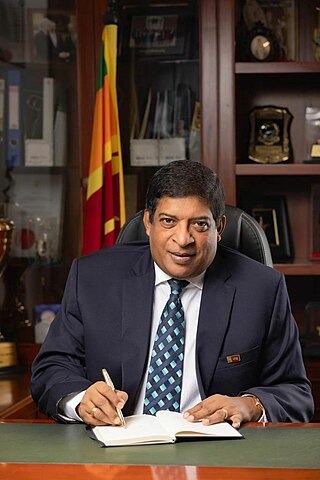
Ravindra Sandresh Karunanayake is a Sri Lankan politician. A former Member of Parliament for the Colombo District, he served as the Minister of Foreign Affairs from May 2017 to August 2017, Minister of Finance from 2015 to 2017, and Cabinet Minister of Commerce and Consumer Affairs from 2001 to 2004 and Cabinet Minister of Power and Energy since December 2018 till November 2019.

Johnston Xavier Fernando is a Sri Lankan politician, former Cabinet Minister, Chief Government Whip and a current member of the Parliament of Sri Lanka from the Kurunegala District. He belongs to the Sri Lanka Podujana Peramuna. He is considered a leader of the Rajapaksa loyalist mobs that carried out violent attacks against peaceful protestors during the 9 May 'Black Monday' incident of the 2022 Sri Lankan Protests.
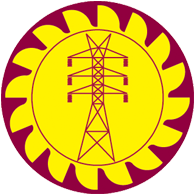
The Ceylon Electricity Board - CEB, is the largest electricity company in Sri Lanka. With a market share of nearly 100%, it controls all major functions of electricity generation, transmission, distribution and retailing in Sri Lanka. It is one of the only two on-grid electricity companies in the country; the other being Lanka Electricity Company (LECO). The company earned approximately Rs 204.7 billion in 2014, with a total of nearly 5.42 million consumer accounts. It is a government-owned and controlled utility of Sri Lanka that takes care of the general energy facilities of the island. The Ministry of Power and Energy is the responsible ministry above the CEB. Ceylon Electricity Board (CEB), established by the CEB Act No. 17 of 1969, is under the legal obligation to develop and maintain an efficient, coordinated and economical system of electricity supply in accordance with any licenses issued.

People's Bank is a state-owned commercial bank in Sri Lanka. The second largest commercial bank in Sri Lanka. Established on 1 July 1961, it has its head-offices at Sir Chittampalam A. Gardiner Street in Colombo. The bank offer both retail and corporate banking services, with a network of 739 local branches, service centers and has an asset base of LKR 1.873 trillion (2019) with over 14 million customers. People's Bank received a high national long-Term Rating of AA+ by Fitch Rating. People's Bank most awarded state-owned company such as "Green Plus" "Carbon Conscious Award". People's Bank became Sri Lanka's best performing bank. Bank mainly targets small and medium enterprise. India has extended multiple credit lines and currency support to Sri Lanka, aligning with its policy of prioritizing neighboring nations and fostering strong relationships as a friendly neighboring country.
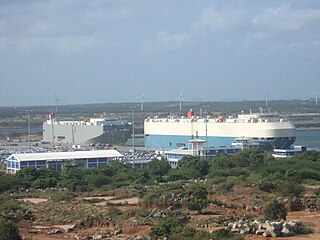
The Hambantota International Port is a deep water port in Hambantota, Sri Lanka, notable for its 99-year lease to China Merchant Ports. Opened in 2010, it is Sri Lanka's second largest port, after Colombo. In 2020, the port handled 1.8 million tonnes of cargo.

Lakshman Namal Rajapaksa is a Sri Lankan politician. He is the eldest son of Sri Lankan former President and former Prime Minister Mahinda Rajapaksa and a member of parliament. He was the Minister of Youth and Sports from 2020 to 2022.
A lottery is a form of gambling which involves selling numbered tickets and giving prizes to the holders of numbers drawn at random. Lotteries are outlawed by some governments, while others endorse it to the extent of organizing their own national (state) lottery. It is common to find some degree of regulation by governments, like allowing or prohibiting online sales of tickets.

Ceylon Petroleum Corporation, commonly known as CEYPETCO (CPC), is a Sri Lankan oil and gas company. Established in 1962 and wholly owned by the Government of Sri Lanka, it is the largest oil company in Sri Lanka. It was formed in 1961 by nationalisation and expropriation of all private oil companies in Sri Lanka at the time of its formation. It is under the ownership of Ministry of Petroleum Resources Development headquartered in Colombo. It is the largest government owned company in the country, with an operational profit of Rs. 33.9 billion for the financial year 2020.
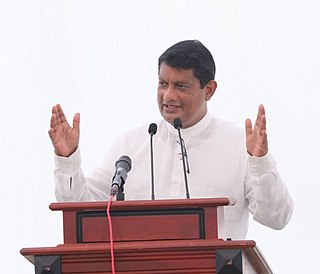
Nalaka Godahewa, MP is a Sri Lankan politician, former Cabinet Minister, and former corporate executive. He served as the Minister of Mass Media from the 18th of April 2022 until his resignation on the 9th of May 2022. Prior to that he was the State Minister Urban Development since August 2020 In addition to this, he is a member of parliament for the Gampaha District. He had served as the Chairman, Securities Exchange Commission ; Chairman, Sri Lanka Tourism (2010–2012); and Managing Director, Sri Lanka Insurance (2006–2009).
Kulappu Arachchige Don Dhammika Perera, commonly known as Dhammika Perera, is a Sri Lankan billionaire businessman and politician. A top corporate raider, he is one of the wealthiest people in Sri Lanka, controlling 23 listed companies on the Colombo Stocke Exchange. Perera owns a controlling stake in the conglomerates Hayleys and Vallibel One, a company he founded. Through Hayleys, Perera controls Amaya Leisure, The Kingsbury and Singer while Royal Ceramics, LB Finance, and Lanka Tiles are controlled by Vallibel One. Perera has been closely linked to the former President Mahinda Rajapaksa, having served as chairman of the Board of Investment of Sri Lanka from 2007 to 2010 and Transport Secretary from 2011 to 2015. He was appointed a Member of Parliament in the National List in June 2022, succeeding Basil Rajapaksa from the Sri Lanka Podujana Peramuna, briefly serving President Gotabaya Rajapaksa as his Minister of Investment Promotion from June to July 2022.

Corruption in Sri Lanka is considered a major problem in all levels of society, from the top echelons of political power to minor staff levels.
Lakshman Arjuna Mahendran is a Sri Lankan-born Singaporean economist and banker. He is a former Governor of the Central Bank of Sri Lanka (CBSL), having been appointed by President Maithripala Sirisena in January 2015 and served until the end of his term on 30 June 2016. He was the former Managing Director of HSBC Private Bank, Chief Investment Officer of Emirates NBD as well as chairman and Director-General of the Board of Investment of Sri Lanka. Mahendran is currently residing in Singapore, which has refused to extradite him on a request from Sri Lanka routed through interpol.
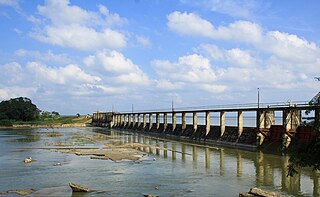
Iranamadu Tank is an irrigation tank in northern Sri Lanka, approximately 3 mi (5 km) south east of Kilinochchi.
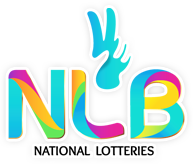
National Lotteries Board also known NLB government own national lottery company. Founded in 1955, under Finance Act No.4 of 1955 under the Minister of Health was the Major Edward A. Nugawela. (1947–1958). National Lotteries Board resisted under Finance Act no.11 of 1963. NLB number total agency network approximated 3,000. In 2017 National Lotteries Board fully operated by Ministry of Finance. NLB, earn Rs. 17.5 billion in 2015. Sri Lanka government one of main revenue but since 2018 revenue decreased. Revenue decreased by 18% in 2018.

The Sri Lankan economic crisis is an ongoing crisis in Sri Lanka that started in 2019. It is the country's worst economic crisis since its independence in 1948. It has led to unprecedented levels of inflation, near-depletion of foreign exchange reserves, shortages of medical supplies, and an increase in prices of basic commodities. The crisis is said to have begun due to multiple compounding factors like tax cuts, money creation, a nationwide policy to shift to organic or biological farming, the 2019 Sri Lanka Easter bombings, and the impact of the COVID-19 pandemic in Sri Lanka. The subsequent economic hardships resulted in the 2022 Sri Lankan protests. Sri Lanka received a lifeline in the form of an Indian line of credit amounting to $4 billion. This substantial credit infusion served to cover the costs of importing essential goods and fuel. As a result, the foreign currency reserves of debt-ridden Sri Lanka experienced a notable improvement, reaching $2.69 billion.














